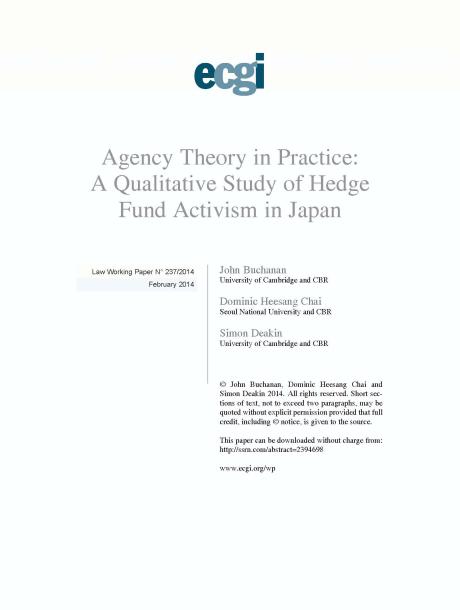
Law Series
Agency Theory in Practice: A Qualitative Study of Hedge Fund Activism in Japan
Abstract
We look at the reaction to hedge fund activism of managers and shareholders in Japanese firms and explore the implications of our findings for agency theory. We use a qualitative research design which treats the standard agency-theoretical model of the firm as only one possible approach to understanding corporate governance, to be tested through empirical research, rather than as an assumption built into the analysis. We find that Japanese managers do not generally regard themselves as the shareholders? agents and that, conversely, shareholders in Japanese firms do not generally behave as principals. Our findings suggest that the standard principal-agent model may be a weak fit for firms in certain national contexts.









